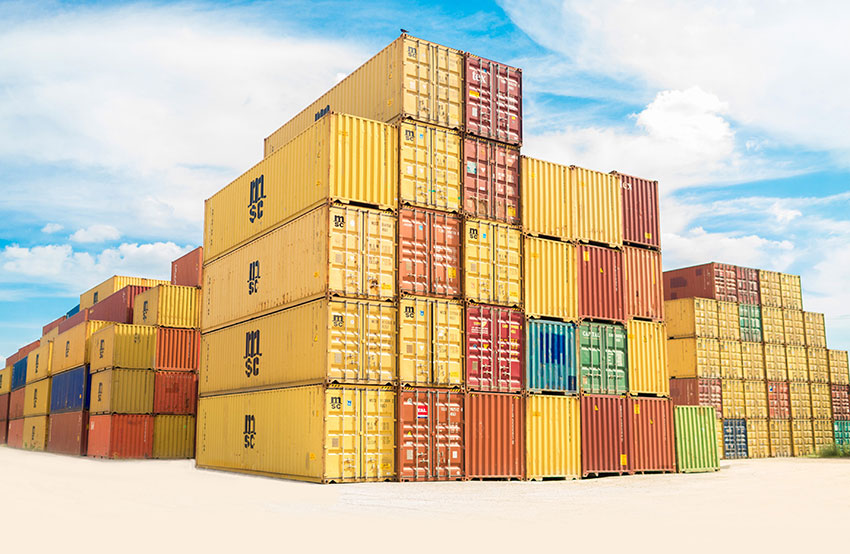Show:
How To Make An Efficient Logistical Team In Your Company
Logistics is one of the most important aspects of any company. Without a properly functioning logistics team, your company will quickly fall apart. In this blog post, we will discuss how to create an efficient logistical team in your company. We will go over the different roles that are necessary for a successful logistics team and provide tips on how to find and hire the best employees for the job.

Training Courses Can Go A Long Way
When it comes to logistics, training courses can go a long way. While on-the-job experience is always valuable, learning from a training course in procurement can be invaluable. There are many different aspects of logistics, from procurement to transportation, and a course that covers all of them can be very helpful. It is also important to find a course that is tailored to your company’s needs. There are many different training courses available, so be sure to do your research and find one that will be the most beneficial for your business.
Hiring The Right People Is Essential
As with any team, hiring the right people is essential for a successful logistics team. When looking for employees, be sure to find individuals who are detail-oriented and have good problem-solving skills. It is also important to find people who are able to work well under pressure and meet deadlines. Good communication skills are a must, as the logistics team will need to be in constant contact with other departments within the company.
You Need Someone Great In Contract And Supplier Management
An effective logistics team needs someone great in contract and supplier management. This person will be responsible for negotiating contracts with vendors, as well as managing the relationships with those vendors. They will also need to be able to find new suppliers when necessary. It is important to find someone who has good people skills, and a certificate from a training course in procurement can be helpful.

Reverse Logistics
Reverse logistics is the process of returning goods and materials back to their original manufacturers or suppliers. This can be done for a variety of reasons, such as defective items, overstocked items, or simply because the customer changed their mind. While reverse logistics may seem like a hassle, it is actually an essential part of many businesses. Someone with a training course certificate in this aspect of procurement can be a valuable asset to your company.
This is because they will be able to handle the return process quickly and efficiently, while also maintaining good relationships with the suppliers. They will also be able to negotiate return policies that are beneficial for your company. Having someone who is experienced in reverse logistics can save your business a lot of time and money.
Talent Development
Talent development is an important aspect of any company. Without a properly functioning talent development team, your company will quickly fall apart. An important part of procurement, that someone with a training course certificate has gone through, is learning how to develop talent.
Talent development is important for a number of reasons. First, it helps to ensure that your company has a steady pipeline of qualified candidates for open positions. Second, it helps to identify and develop high-potential employees who can be promoted into leadership roles. Third, it helps to create a positive and motivating work environment.
Digital Procurement
Digital procurement is the process of using technology to streamline the procurement process. This can include anything from using an online purchasing platform to automate purchase orders to using data analytics to optimize spending. There are many benefits of digital procurement, including increased efficiency, cost savings, and improved supplier relationships.
Digital procurement can help your company save time and money. By automating purchase orders, you can avoid the hassle of manually entering data and tracking down invoices. Data analytics can also help you optimize your spending by identifying areas where you are overspending or could get better deals from suppliers.
Digital procurement can also improve supplier relationships. By streamlining the procurement process, you can reduce the number of time suppliers spends chasing down purchase orders and invoices. This can free up their time to focus on providing quality products and services, which can lead to improved supplier performance.

Procurement Strategy
A procurement strategy is the process of planning and executing the procurement of goods and services. The goal of procurement strategy is to obtain the best possible value for the company, while also minimizing risk. A good procurement strategy will take into account the company’s needs, budget, and timelines.
There are a few key elements that should be included in any procurement strategy. First, you need to identify the company’s needs. What goods or services does the company need? Second, you need to develop a budget. How much can the company afford to spend on procurement? Finally, you need to establish timelines. When does the company need the goods or services?
Once you have answered these questions, you can begin to develop a procurement strategy. There are a few different approaches that you can take, such as direct purchase, competitive bidding, or Request for Proposal (RFP). Each approach has its own advantages and disadvantages, so you will need to choose the one that best fits the company’s needs.
Efficient Transportation Is Very Important
Efficient transportation is very important in the world of logistics. Without it, companies would be unable to get their products to market in a timely manner. There are many different aspects of efficient transportation, from route planning to loading and unloading. Route planning is a critical part of efficient transportation. The goal is to find the shortest and most efficient route possible, while also taking into account factors such as traffic and weather.
Loading and unloading are also important aspects of efficient transportation. If goods are not properly loaded, they can be damaged in transit. Unloading must be done carefully to avoid injury to workers.
Training, course, procurement, and strategy are all important elements of creating an effective logistics team. By taking the time to learn about each of these elements, you will be better prepared to build a successful team.

 Return to Previous Page
Return to Previous Page








